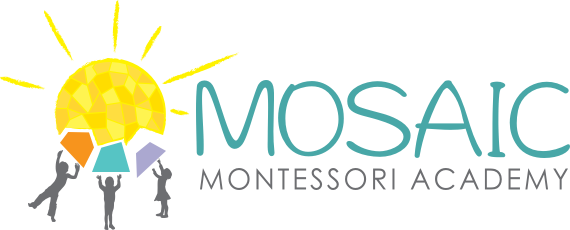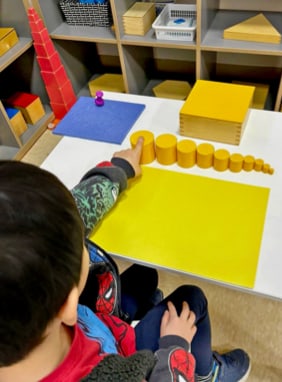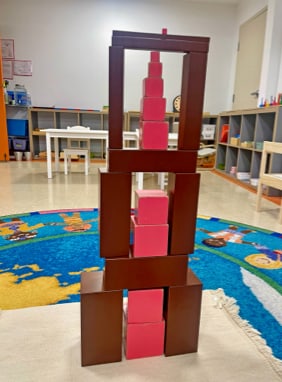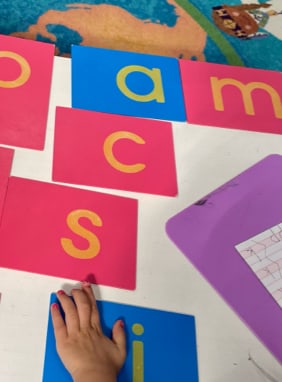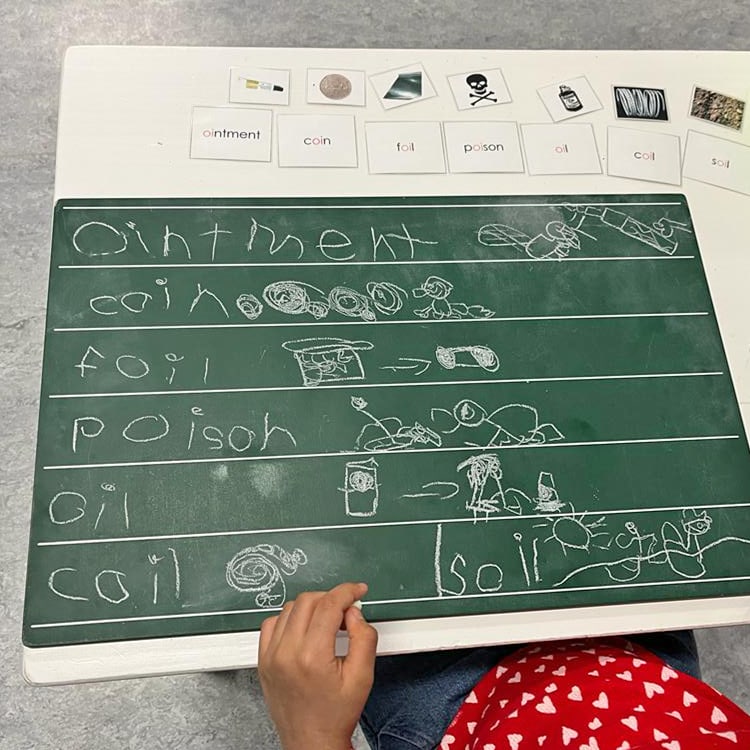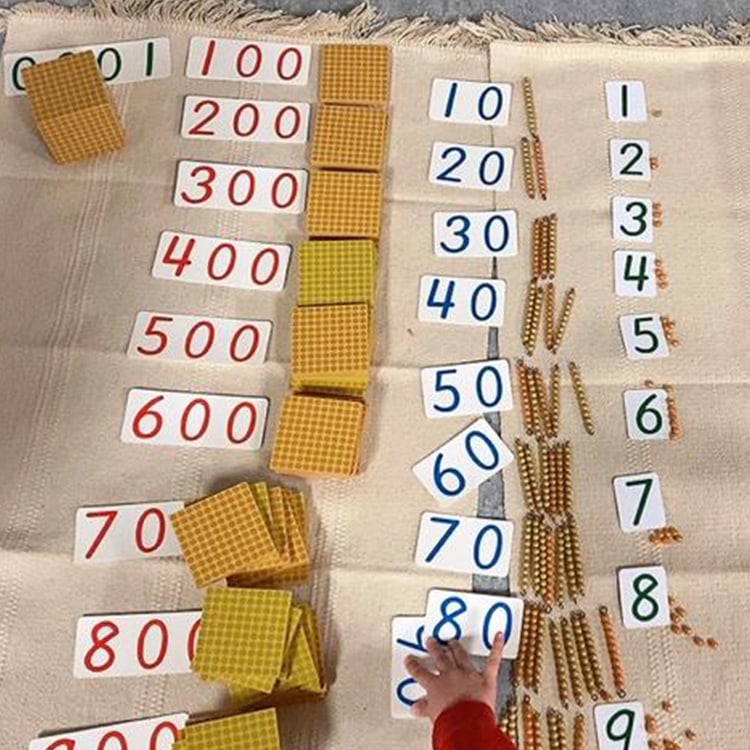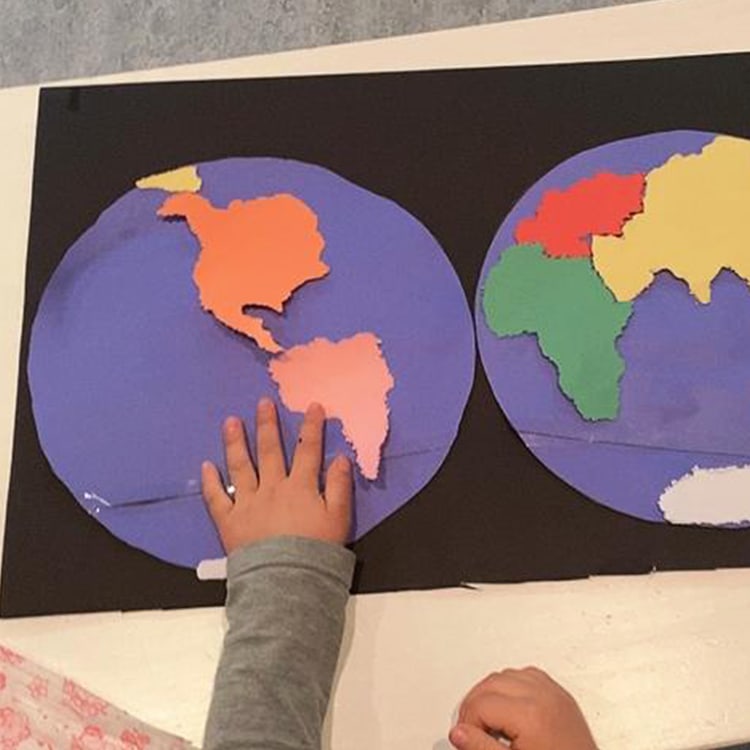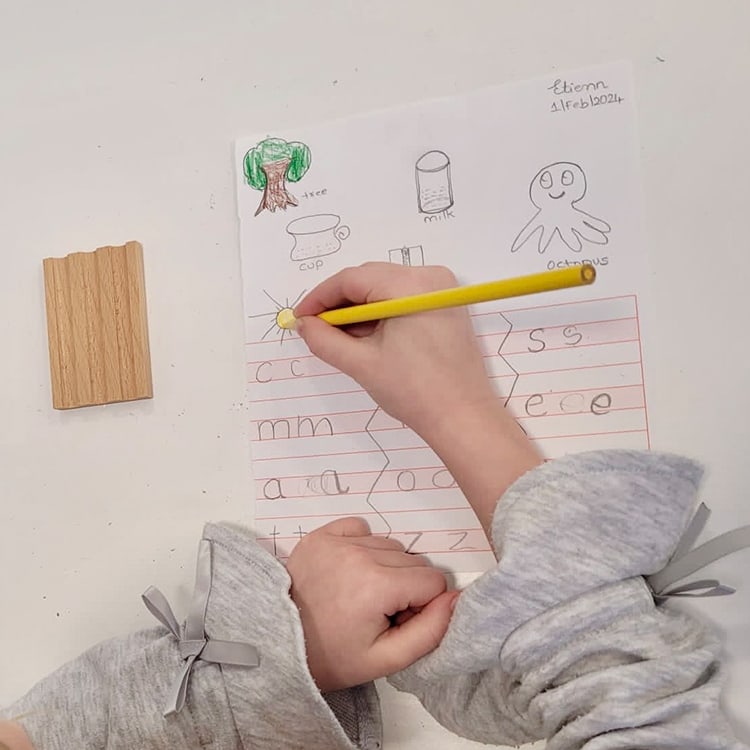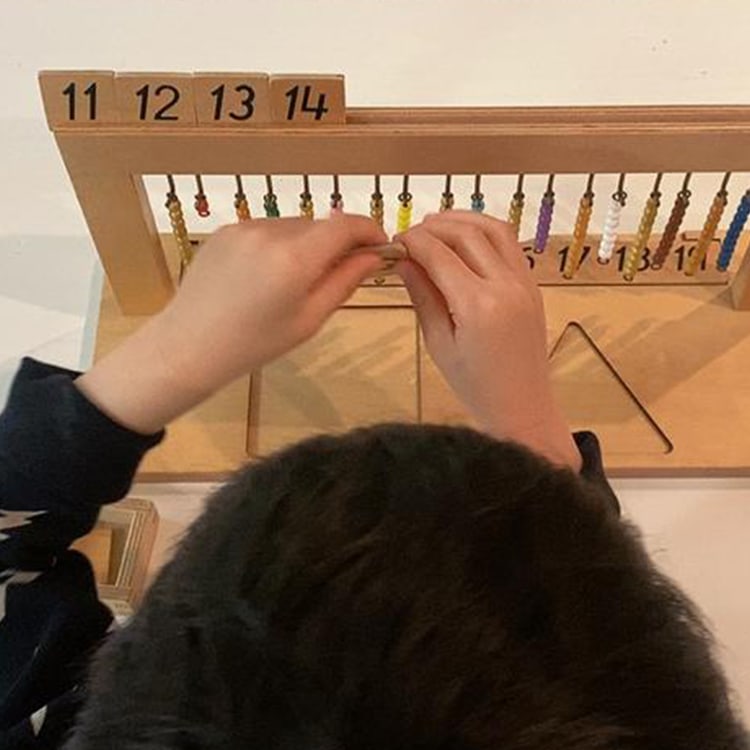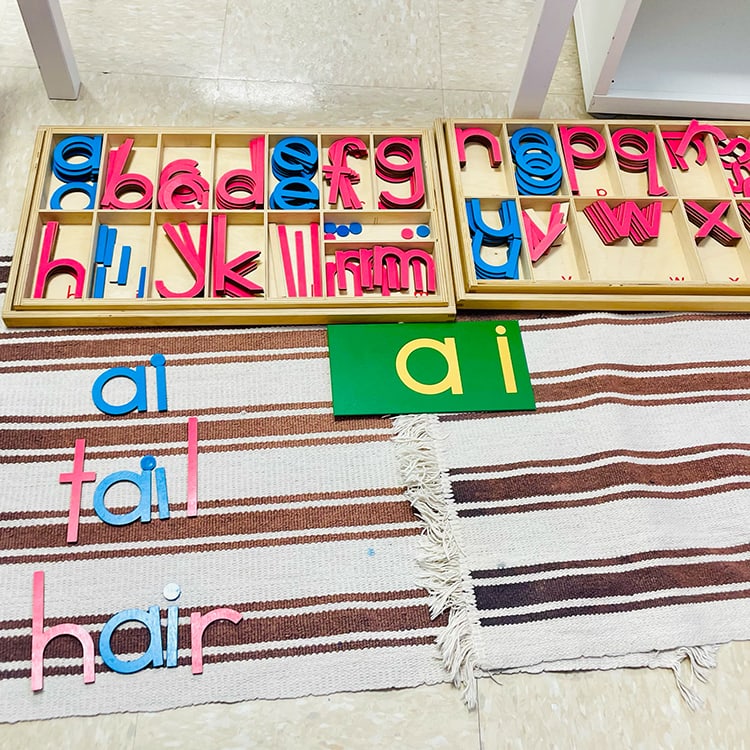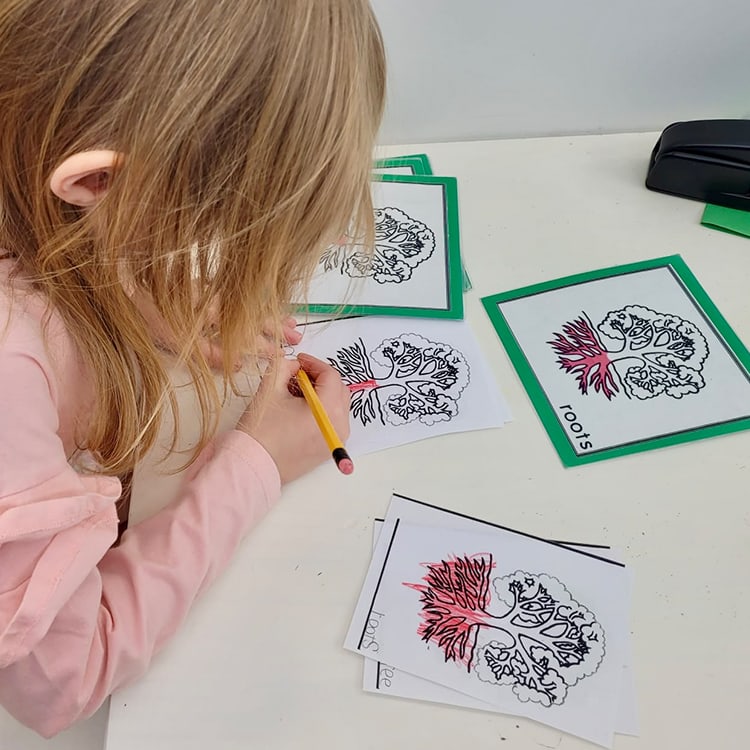Did you know the Montessori method was developed over a century ago but remains one of the most innovative approaches to learning today? By centring on child-led exploration and personal growth, Montessori has reshaped education practices and parenting styles.
The Montessori method can be woven into everyday parenting, where its principles help boost personal development, independence, and creativity as your child grows.
What Is the Montessori Method?
The Montessori method is an educational philosophy founded by Dr. Maria Montessori in the early 1900s. It emphasizes child-led learning, encouraging children to explore their interests at their own pace within a supportive environment.
Focusing on holistic development, this approach emphasizes cognitive, emotional, social, and physical growth.
Montessori classrooms are uniquely designed to provide various materials that appeal to a child’s senses and encourage hands-on learning. Teachers act as guides, facilitating learning rather than directing it.
This creates an environment where children can flourish, developing independence and self-motivation as they explore subjects that intrigue them. As they learn to be naturally curious, children strengthen their critical thinking and problem-solving skills.
Understanding Montessori Parenting
Montessori parenting borrows core principles from the Montessori educational philosophy, extending these ideas into home life. The approach revolves around several key principles that nurture a child’s development.
Independence
In Montessori parenting, fostering independence is important. By allowing children to make choices and encouraging them to complete tasks on their own, parents help build self-confidence and autonomy. This might involve simple activities like dressing themselves or preparing a snack.
Respect
Respect for the child is at the heart of Montessori parenting. It involves recognizing children as people with unique needs and allowing them the freedom to express themselves. This principle not only cultivates an environment of mutual respect but also sets a powerful example for children, teaching them how to respect others in return.
Self-Directed Learning
Encouraging self-directed learning means allowing children to explore their interests and passions. By providing a rich learning environment with various activities and materials, parents can support their child’s natural curiosity and drive to learn.
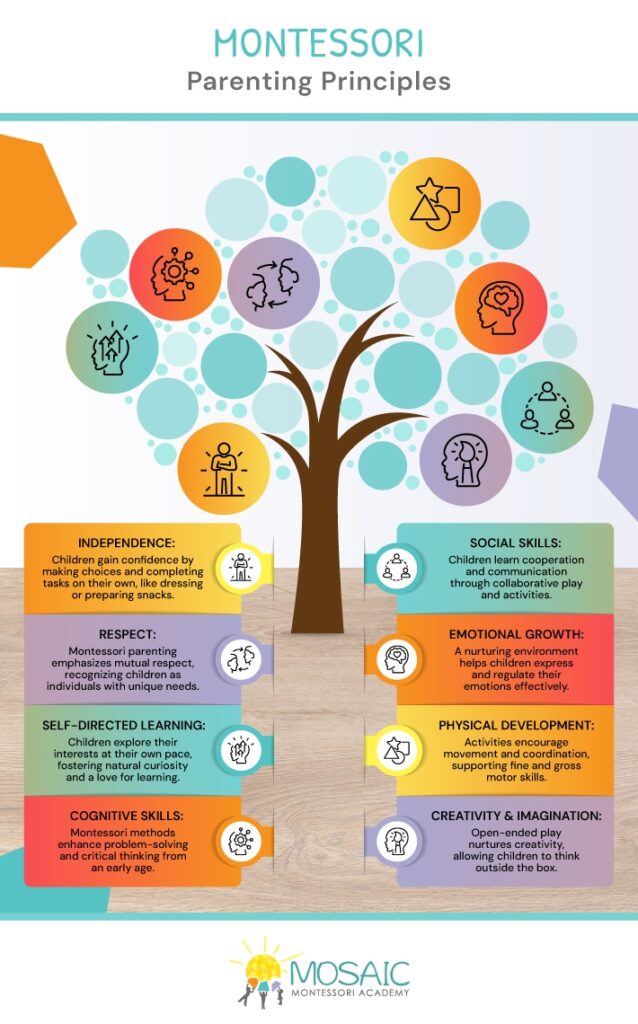
Benefits for Child Development
Montessori parenting offers numerous advantages for a child’s overall development and enriches multiple aspects of their growth.
Cognitive Skills
Children engaging with Montessori principles often develop enhanced cognitive skills. The method’s emphasis on problem-solving, exploration, and independent learning equips children with critical thinking abilities from a young age.
Social Skills
Montessori environments promote cooperation and communication among peers. Children learn to work collaboratively and respect each other’s differences, which translates into enhanced social skills in various settings.

Emotional Growth
By fostering a nurturing and respectful environment, Montessori parenting supports emotional growth. Children learn to identify and express their emotions, leading to improved emotional regulation and empathy.
Physical Development
Activities that encourage movement and coordination are integral to Montessori parenting. Whether through outdoor play or hands-on tasks, children develop fine and gross motor skills that contribute to their physical well-being.
Creativity & Imagination
Montessori parenting nurtures creativity and imagination by providing a wealth of resources and opportunities for open-ended play. Children are encouraged to think outside the box, cultivating a lifelong love for creativity.
How to Incorporate the Montessori Method Into Your Home
Here are some practical ways to seamlessly blend Montessori principles into your family life.
Parenting Practices
Adopt parenting practices that promote independence and respect. Involve children in daily tasks, like cooking or cleaning, to help them build confidence and responsibility.
- Set up a home environment that encourages exploration and learning. Organize spaces with accessible toys and materials, allowing children to engage freely and independently.
- Observe your child’s interests and provide choices that cater to their curiosity. This empowers them to make decisions and fosters a sense of ownership over their learning.
- Respect your child’s individuality by offering activities that match their interests and developmental stage.
Activities at Home
At-home Montessori activities engage children with specific materials to nurture their sense of involvement, fostering learning and development. Here are some activities you can focus on:
- Practical life activities: Engage children in real-life activities like gardening, setting the table, or folding laundry. These tasks develop fine motor skills and instill a sense of responsibility.
- Sensorial activities: Provide opportunities for sensory exploration, such as playing with textured objects or experimenting with different sounds. Such activities enhance sensory perception and cognitive connections.
- Language activities: Encourage language development through storytelling, reading, and engaging conversations. This cultivates a love for language and communication.
- Mathematical activities: Introduce mathematical concepts through fun, hands-on activities like counting objects, sorting shapes, or exploring patterns. This helps build a strong foundation for future math skills.
Montessori at Home
Montessori parenting presents a nurturing and respectful philosophy that fosters a child’s holistic development. By incorporating its principles into daily life, parents can create an enriching environment that promotes independence, creativity, and emotional growth. Through thoughtful observation and meaningful activities, children can explore their interests and develop essential life skills. For parents looking to deepen their understanding or seek support, contact Mosaic Montessori Academy for personalized guidance and answers to any questions you may have about implementing Montessori principles in your home.
